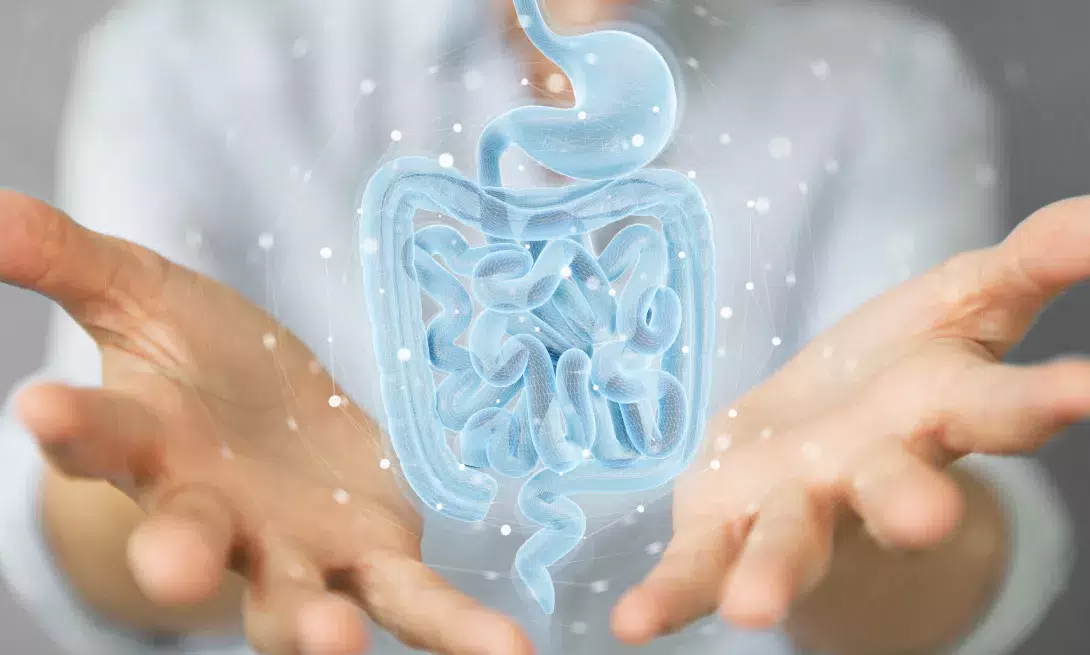Highlights from the UEGW 2023
By Dr. Elena Poluektova
Vasilenko Clinic of the Propaedeutics of Internal Diseases, Gastroenterology and Hepatology, I.M. Sechenov First Moscow State Medical University, Moscow, Russia
Lay public section
Find here your dedicated section
Sources
This article is based on scientific information
Sections

About this article
On October 15-17, 2023, the 31st United European Gastroenterology Week meeting was held in Copenhagen, where the most important issues in the diagnosis and treatment of gastrointestinal diseases are traditionally discussed.
The vast majority of the presentations gave the information about the composition and functions of the microbiota and about the gastrointestinal microbiota as a therapeutic target in the treatment of various diseases.
A special symposium (“Fungi in your gut: friends or foes”) was devoted to the mycobiome, as one of the components of the microbiome, mycobiome formation, environmental factors influencing mycobiome composition, the interaction of the mycobiome with bacteria (Selena Porcati, Italy);
role in the pathogenesis of IBD (Dragos Ciocan, France), and its potential involvement in carcinogenesis (Alexander Link, Germany).
Microbiome in IBS/IBD
The information about the microbiome role in the pathogenesis of irritable bowel syndrome (IBS) and irritable bowel disease (IBD) is still growing and expanding (symposium “Disease primer: The role of gut microenvironment in IBD and IBS”). Harry Sokol (France) and Rinse K. Weersma (Netherlands) reported that changes in microbiota composition may be considered as a biomarker for IBD and could be targeted by therapeutic intervention through probiotics, postbiotics, bacteriophages, and fecal transplantation. As for changes in the microbial composition of the gastrointestinal tract in patients with IBS, it has an undeniable contribution to all the pathogenic mechanisms of the disease (inflammation of the intestinal wall, impaired motility, hypersensitivity), therefore the prescription of non-absorbable antibiotics and probiotics can be considered an essential part of the IBS treatment (Magnus Simren (Sweden) and Premysl Bercik (Canada).

What is a healthy microbiota?
Furthermore, there were some questions raised without definite answers yet. For example, we still lack knowledge of what the term “healthy microbiota” actually means. It is assumed that the more appropriate term would be “unhealthy microbiota” (the so-called B2 enterotype), reflecting the inflammatory changes in the intestine and accelerated transit –when microbiota is represented mainly by Bacteroides, is low in Firmicutes and has poor microbial diversity. Targeting the microbiota composition in order to make it shift it from B2 enterotype can be considered a new therapeutic strategy (Jeroen Raes, Belgium).
In addition, due to the unquestionable importance of intestinal microbiota composition both in maintaining human health and promoting the pathogenesis of some chronic non-infectious diseases, clinicians nowadays, often unreasonably, expect to use microbial composition assays as a diagnostic, prognostic or therapeutic tool. An increasing number of commercial organizations offer microbiota diagnostic tests which are available with neither clear indications for use nor reliable interpretation of the results. An International Consensus development has begun, bringing together more than 50 international experts with the ultimate goal of streamlining diagnostic tests, treatment approaches and advancement of knowledge in the field of the microbiome (Gianluca Janiro, Italy).
In addition to this discussion of the microbiome as a direct pathogenic factor and a target for therapeutic intervention, other aspects of the pathogenesis and treatment of diseases associated with micobiom gut dysbiosis were also presented. Among them are IBD and oncological diseases.
For more than 20 years we have indirect serological and genetic evidence of fungal role in intestinal inflammation in IBD patients, such as antisaccharomyces antibodies in Crohn disease patients and genetic polymorphism of сaspase recruitment domain-containing protein 9 (CARD9) and dectin-1. These polymorphisms are mediate signals from pattern recognition receptors to activate pro-inflammatory cytokines. A lot of studies in the last ten years prove that abundance of fungi species in the gut IBD patients decreases compared to healthy people. Alterations of the mycobiota composition associate with poor injury repair of mucomucosa (in animal model). Sacharomyces boulardii given as probiotic can reduce gut inflammation due to intestinal barrier restore (in animal model). But the use of fungal community modification to treat IBD needs further research (Dragos Ciocan).
In recent years, there has been increasing interest in the potential role of intestinal fungi and their recognition receptors, (for example, C-type lectin receptors) in the development of human cancers, such as esophageal, gastric, pancreatic, colorectal cancer, hepatocellular carcinoma and
non-gastrointestinal cancer also – melanoma, breast cancer. Some studies demonstrate that fungal pathogens may induce inflammatory responses, contributing to tumorigenesis.


